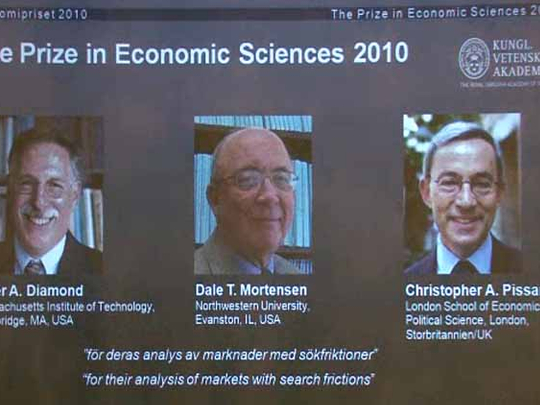
Stockholm: Peter Diamond and Dale Mortensen of the United States and British-Cypriot Christopher Pissarides on Monday won the 2010 Nobel Economics Prize for work on why supply and demand do not always meet in the labour market and elsewhere.
The prize highlights one aspect of a policymaking problem which has bedevilled governments of advanced countries since the oil shocks of the 1970s: high unemployment which has risen even higher because of the global economic crisis.
The jury lauded the trio "for their analysis of markets with search frictions," which helps explain how unemployment, job vacancies and wages are affected by regulation and economic policy.
According to traditional theory, labour markets should work on their own, with job seekers finding available jobs, thus creating balance.
The three Nobel laureates, however, help show with their model — the Diamond-Mortensen-Pissarides, or DMP model — that markets do not always work in this way.
Owing to small glitches, buyers may find it difficult to find sellers and job seekers may not find the employers looking to fill a position. For instance, a small cost faced by employers looking for labour may mean they decide not to take on workers even though they need them.
The trio's model helps explain why unemployment persists and proves stubbornly resistant even when economic circumstances improve.
It also helps identify areas for government policy action, pinpointing for instance what governments can do to improve employment and prevent long-term unemployment through training.
The jury noted the trio's work in search theory can also be applied to a number of other areas besides the labour markets, including the housing market and public economics.












